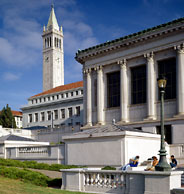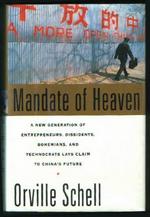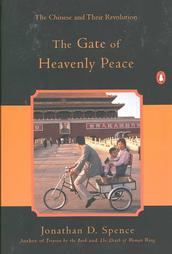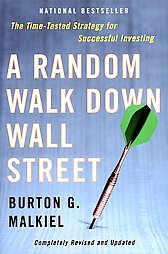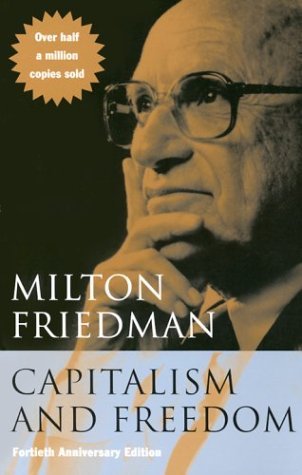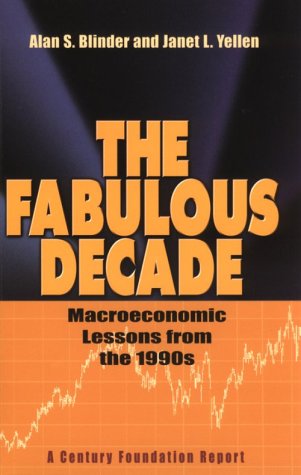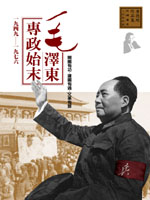The Discipline Inspection Committee’s Report on Shanghai Corruption and Chen Liangyu
From My CDT Post
According to sohuxiaobao blog, the Central Committee for Discipline Inspection recently submitted to the central Party leaders the fourth report on Shanghai corruption Investigation.
The report said the committee found 1322 inappropriate accounts (including 355 foreign-currency accounts), with savings amounting to 98,643 million yuan. Those accounts were owned by some Shanghai party officials, government officials, and their spouses and relatives, and were under pseudonyms.
The report said Chen Liangyu, together with his spouse and relatives, owned 53 accounts (9 of them are foreign-currency accounts), which were also under pseudonyms. Chen’s deposits in those accounts were as much as 274.1 million yuan.
The report said Chen Liangyu and his spouse and relatives owned nine houses and three companies in Shanghai. They also held 25 passports, 17 of them were under pseudonyms. The committee also found 19 flight tickets to Europe, Australia, and other countries. Those business-class tickets were for whole year travel.
The report also said Chen Liangyu had improper relationships with 11 women (some of them were married) in Shanghai, Hangzhou, Nanjing, Nantong, and other cities. Between September of 2001 and October of 2002, Chen was sued four times for swindles and rapes. Chen privately settled those cases with economic compensations (as much as 500,000 yuan), job offers, and project contracts.
-Click here to read more (Chinese)
-Also read CDT post The Aftershocks of the Shanghai Political Earthquake
Wang Guangmei, China’s Former First Lady, Died
Fromhttp://chinadigitaltimes.net/2006/10/wang_guangmei_chinas_former_first_lady_died.php
Wang Guangmei, wife of Liu Shaoqi, former president of People’s Republic of China, die in Beijing on Oct. 13, Singtaonet said. Wang’s death was still not publicized in China.
The legendary former first lady was jailed and tortured for 12 years after his husband was removed illegally by Mao Zedong in the Culture Revolution. Liu was once considered the successor of Mao, but his moderate economic policies and rising political position displeased Mao, who remove Liu and further more, expelled him from the Communist Party. Liu died tragically, humiliated as a “traitor”, a “scab”, and “the biggest capitalist roader in the Party”.
Graduated from Fu Ren University (北京辅仁大学), Wang was named as “Queen of Math” and “the first master of atom physics”. Wang spoke French, English and Russian. Her brother, Wang Guangying, was the vice chairman of National People’s Congress and the founder of China Everbright Group, one of the biggest state-owned conglomerates.
Wang Guangmei’s death became particularly sensitive as this year is the 30th anniversary of Mao Zengdong’s death. To commemorate it, the central government just held a nation-wide memorial.
– Also read report from China Times (Chinese)
– Taiwan’s United Daily published two stories (Chinese), one about Mao Zedong and Liu Shaoqi, one about Wang Guangmei and Jiangqing, Mao’s infamous wife.
Top Statistician Qiu Xiaohua Surprisingly Dismissed
Qiu Xiaohua, Director and party chief of the National Bureau of Statistics, was surprisingly removed. A PhD in Economics, Qiu had been working at the statistic bureau for 24 years. Qiu is very outspoken and is considered a typical technocrat.
Xinhua’s report didn’t give any detailed reasons on his removal. Discussions from blogsphere disclosed at least three possible reasons:
1, Qiu might be implicated in Chen Liangyu scandal.
2, Qiu stubbornly deviated from central government’s macro economic policy by claiming investment and the whole economy are not overheating. China should put more emphasis on trade surplus and foreign exchange, Qiu said.
3, Despite heavy suspicions from the outside, Qiu insisted on the reliability of the statistics from his bureau.
Before the central government reveals more details, we will never know whether Qiu is a member of the Shanghai Gang which the new central leader insists to disband. There is nothing more we can talk about on reason one.
Qiu’s speeches on the macro economy are seen on Chinese newspapers. He is one of a few high-level officials disagreeing with the central government on the economic policies. In a news conference in September, Qiu said the growth speed of investment was slowing down, and it’s unnecessary to frame policies to curb the economy. This opinion is an outright opposition against the central government.
Also it’s not news that China’s statistics are widely doubted. For this Qiu should at least not be fully blamed, since false numbers have a long tradition in China. Under the communist rule, statistical default can at least date back to the Great Leap Forward Mao launched, when communist offcials were much more brazen to generate miraculous figures. The wrongdoing is derived from China’s whole bureaucratic system. I would rather believe Qiu had done his best to ensure the statistical authenticity. “Happy number” will not be annihilated until China stops evaluating local officials on economic performances. Further more, when was the last time a bureau chief said what his bureau had been doing was wrong?
Finally, one thing has to be mentioned is that Qiu is not enthusiastic on the Green GDP initiated by the Environment Protection Bureau, and allegedly supported by the central government.
A green GDP is good. And China urgently needs a green economy. But, I seriously doubt the “seriousness” of the central government.
First, the environment protection bureau almost has no influence on local governments, which are passionately promoting local economies by sacrificing the environment. In fact, I won’t believe any local officials will execute any orders from the environment bureau.
Pan Yue, the vice bureau chief, said in September that he was still not sure when the green GDP system will take effect. This is a solid proof that the bureau is not confident on their authority, or, the central government is far from ready to promote a green GDP.
By shying away from appealing for an impossible green GDP, Qiu at least proved he has a sober mind.
I would take a removal of a technical and outspoken offcial as another strong signal that the incumbent government is drifting away from economic and political freedom. Political strikes overweight working performaces. Central edicts kill alternative viewpoints. Even if the central government is correct on its judgment, it’s very dangerous to eliminate different ideas.
The Aftershocks of the Shanghai Political Earthquake (part 6): Noxious Rice and an Investigation in Beijing
From My CDT Post
More than 300 hundred investigators from the Central Committee of Discipline Inspection have stationed in Beijing, ready to launch a full investigation on the possible corruptions of Beijing officials, Hong Kong magazine Ya Zhou Zhou Kan reported. The magazine said the investigation is one of a series of anti-corruption campaigns Hu Jingtao kicked off to curb corruptions in China’s three major cities: Beijing, Tianjin, and Shanghai.
The investigation in Beijing is even on a larger scale than in Shanghai. The investigators gather in a hotel at No. 8 Wanshou Road.
Shanghai investigators station in Moller Villa Hotel, a 70-year old building got well-known overnight after Chen Liangyu was sacked.
The investigation team has encountered strong resistance in Beijing. The magazine reported that the team received a mail explosive a few days ago.
Jia Qinglin, member of the Standing Committee of the Political Bureau, is implicated in some scandals under investigation.
Earlier, 2,000-ton noxious stale rice was discovered in Beijing. Beijing authorities managed to cover the news until Ya Zhou Zhou Kan publicized it. The magazine also reported that the noxious rice is circulating in market, which the authorities denied.
Jing Liang Heng Ye (京粮恒业), a state owned company, is allegedly involved in the selling of the rice.
Also Read The Aftershocks of the Shanghai Political Earthquake (part 5): Chen Liangyu’s “Personal Cashier” Under Investigation
Former Shanghai Tycoon Zhou Zhengyi Arrested Again
From My CDT Post
Zhou Zhengyi, a former Shanghai property tycoon who just completed a three-year sentence in May, is under house arrest in Shanghai, Hong Kong magazine Ya Zhou Zhou Kan said.
Zhou had been managing to obtain visas to southern American countries, the magazine said. Zhou almost made his way to south America before he was detained for being implicated in economic crimes of senior Shanghai officials.
Zhou was once named China’s 11th richest man with an estimated personal fortune of $320 million. He is widely considered a close ally of Chen Liangyu.
Click HERE to read more about Zhou Zhengyi.
The Aftershocks of the Shanghai Political Earthquake (part 5): Chen Liangyu’s “Personal Cashier” Under Investigation
From my CDT post
Liu Hongwei, Assistant Minister of Finance and former head of Bureau of Finance of Shanghai, is under the investigation of the Central Committee of Discipline Inspection, Taiwan newspaper China Times said.
Liu is not only a good accountant, but is also a good dancer. She used to be the accountant and dancing partner of former chief of CPC Shanghai Committee Chen Liangyu, the newspaper said. Chen was just sacked for severe discipline violations.
Both Liu and Chen are from Ningbo, a coastal city in east Zhejiang province. In 1998, Chen promoted Liu to the head of Bureau of Finance and Bureau of Taxation, two pivotal administrations in charge of Shanghai’s treasury.
Through Liu, Chen closely controlled the treasury. Liu also played a significant role in Shanghai’s pension fund scandal, the newspaper said.
Click HERE to read the report from China Times (Chinese).
Also read The Aftershocks of the Shanghai Political Earthquake (part 4): Property Developers Under Investigation
The Aftershocks of the Shanghai Political Earthquake (part 4): Property Developers Under Investigation
Not every one is happy during the National Day holiday. A special team from the Central government is scrutinizing more than 10 Shanghai property developers that might be implicated in the pension fund scandal, Chinese newspaper 21st Century Business Herald reported. Most developers under investigation are among Shanghai’s top 50 real estate companies.
Three state-owned developers’ bosses, who once were very influential and powerful, are implicated. The newspaper didn’t name the three people.
The special investigation team is led by He Yong(何勇), a senior CPC leader. He is the member of the Secretariat of the CPC Central Committee and vice secretary of Central Committee for Discipline Inspection.
The special team is also investigating Shanghai’s housing provident fund (住房公积金) and health care insurance fund (医疗保险金), the newspaper said.
Separately, Zhou Qiang (周强), who was just promoted as the vice chief of CPC Hunan Province Committee, was appointed as the acting governor (代省长) of Hunan province. Zhou said in his inaugural that he will be grateful, progressive, reverent, stainless, and clean (常怀感激之情,常葆进取之心,常存敬畏之念,清清白白做人,干干净净做事). Zhou was promoted from First Secretary of China Youth League Central Committee, a position Hu Jintao once held. The Youth League is considered to be the power base of the current CPC boss.
The Chain Corruptions in Shanghai and Chen Liangyu
From 21st Century Business Herald
Sun Luyi, Director of the General Office of the CPC Shanghai Committee, was brought down on Sept. 28.
Sun used to be the vice principal of Shanghai Institute of Politics. Sun was promoted to the deputy chief of the Organization Department of the CPC Shanghai Committee in 1998 and director of Shanghai Human Resource Bureau in 2004.
People close to Sun said he was a shrewd, low-profile official. They were surprised that Sun got sacked.
Sun was bribed by Zhang Rongkun, boss of Fuxi Investment Company. Zhang was the key figure in the Shanghai pension fund scandal. Zhang bribed more than 20 officials. Sun was just one of them.
Zhang’s two sins
Zhang’s official counts were swindling and bribing.
Zhang illegally loaned 3.65 billion yuan from Shanghai pension fund. The loan was never disclosed in the company’s financial statements. Without revealing the heavy debt, Zhang issued 1-billion-yuan short term bonds, and became the first private company that ever issued bonds in China. Fuxi’s bonds were downgraded to C after the scandal was uncovered.
Zhang’s bribery has implicated Zhu Junyi, former head of Shanghai Labor and Social Security Bureau, Qin Yu, former vice chief of Baoshan District Committee, and Sun Luyi.
Four years ago, before Zhang acquired Lu Qiao Group, he bribed officials at Shanghai CPC Committee for financial support. He was granted with the pension fund. Qin Yu and Zhu Junyi were two key officials executed the grant.
Qin Yu owned five apartments in Shanghai. With his own salary, Qin could never afford such a luxury.
Shanghai Electric
In March of 2004, Shanghai Electric invited five strategic investors, one of whom was Zhang Rongkun’s Fuxi Investment. Zhang paid 1 billion yuan for an 8.15 percent stake. After Shanghai Electric’s IPO, the value of Zhang’s stake jumped to 2.7 billion yuan. Without briberies, this assured deal wasn’t possible to land on Zhang.
Wang Chengming, Chairman of Shanghai Electric, was also implicated.
Li Songjian, Chairman of Mingyuan Group, another shareholder of Shanghai Electric, is also under investigation. Li disappeared half a month ago.
Li Songjian was among 2004 Forbes Chinese Billionaire list with $850 million. The main business of Li’s Mingyuan Group is property development, hardly having anything to do with electric.
New Huangpu Group
Another person involved in the pension fund scandal is Wu Minglie, Chairman of New Huangpu Group. Wu loaned 1 billion yuan from the pension fund in 2005. The loan was immediately handed to Huanwen Investment Company, which then bought a 75 percent stake from New Huangpu Group and a 18 percent stake from New Huangpu Co., a public company under the group.
Also read The Aftershocks of the Shanghai Political Earthquake (part 3): Reactions from Citizens
The Aftershocks of the Shanghai Political Earthquake (part 3): Reactions from Citizens
From My CDT Post:
The turmoil following the dismissal of Shanghai’s boss is far from over, and finally we have some voices from the mass. They are demanding their pensions, which were embezzled by the greedy officials and businessmen, including Chen himself. Read story by Geoff Dyer from Financial Times:
Shanghai’s disgruntled want pensions Mao cost them
Shanghai, like most Chinese cities, has a small core of disgruntled citizens who regularly congregate outside public buildings in the hope of getting officials to hear their complaints. Many are unemployed or retired and feel they have little to lose by challenging authority.
Over the past few weeks, however, their sense of injustice has risen as details have dripped out about a scandal at the Shanghai government pension fund, which on Monday led to the dismissal of the unloved party secretary, Chen Liangyu.
Police have already detained 17 people who were protesting outside a hotel where more than 100 anti-corruption investigators from Beijing are based, according to Human Rights in China.[Full Text]
Also read CDT’s series coverage on the Shanghai pension fund scandal and the political shock.
Shanghai Boss Downed Amid Pension Funds Crackdown
The After Shocks of the Shanghai Political Earthquake (part 1): Further turmoil grips Shanghai
The Aftershocks of the Shanghai Political Earthquake (part 2): More Officials Came Down
An Economic Analysis of China’s Internet Censorship
China Digital Times has a delicious story on China’s Internet censorship told by an inside man.
China’s government spends tons of money, the tax payers’ money, on monitoring and controlling the online behaviors of tax payers. More over, Internet surveillance and control have been a lucrative source of profits and budgets to some government administrations, most prominently the Ministry of Public Security and the Ministry of Information Industry, two powerful administrations that often compete fiercely on state budget.
Internet censorship is a special market, where the suppliers are a few administrations and their conspirators–those facility and technique suppliers. And the buyers are, well, not the tax payers, but the communist party.
So it’s a market with competitive suppliers but only one buyer. Definitely a buyer’s monopolistic market.
I strongly recommend economists to join in the research on China’s internet censorship, where human rights activists and academics from political, social and technical circles have invested huge amounts of time.
With my shallow economic knowledge, what I observed is that in a buyer’s market, suppliers will make their best endeavors to seduce buyer’s attention. And their services will be increasingly solid, cutting-edge and even breath-taking. That’s why the lives of China’s Internet users are getting worse.
Hopefully we will have a counter-censorship market that could be as monopolistic as the censorship market is. Unfortunately, in the counter-censorship market, there are a slew of demands but only sprinkling supplies. To make things worse, buyers in this market are usually penniless, and suppliers are largely voluntary.
Since Mao’s “marvelous” people’s communal economy, when was the last time you witnessed a durable voluntary economy?
Story from China Digital Times (translated by CDT):
I am a network manager of a telecom company (sorry I don’t dare to disclose the name of our company).
I can confirm that the operating unit which is responsible for blocking and filtering the national gateways belongs to the Ministry of Information Industry. Before we can expand our bandwidth, we have to ask for their permission, and tip them a “surveillance and control fee.” They are shameless.
Additional administrations are involved in the surveillance and control of our provincial and municipal networks, including the Ministry of Public Security, the Ministry of State Security, the Commission for Discipline Inspection, the Army, etc. Their operations often stress the limits of our capacity.
A few days ago, a deputy director of the Bureau of Internet Monitoring of the Ministry of Public Security, whose name is Gu Jian (顾坚), had a conversation with us about renting our bandwidth. He said the state government allocated a large amount of funds for the use of the online information surveillance and control project.
How could a Bureau of Internet Monitoring have this huge amount of money? We were suspicious. We managed to unearth the truth using our connections with the Information and Telecom Bureau and the Golden Shield Project of the Ministry of Public Security. They were surprised too, and said it was impossible because leasing bandwidth is the business of the Information and Telecom Bureau.
![]()
Later on we discovered that the project Gu Jian was talking about has nothing to do with bandwidth leasing. What the project really needs is an interface on our network for monitoring purposes. Gu, however, was asking to rent our commercial use bandwidth, which is not related to interface monitoring.
The undisclosed aim of the Bureau of Internet Supervision and Beijing Municipal Department of Internet Supervision (a director named Yu Bing (于兵) from the municipal department joined Gu Jian in the visit) was to use the excuse of information monitoring to lease our bandwidth with extremely low prices, and then sell the bandwidth to business users with high prices to reap lucrative profits. How avaricious they are!

